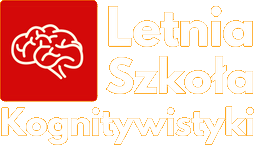Every important new technology creates an imaginative vacuum, and time and again this is the sort of thing that flows into it: tropes of transcendental escape, utopian perfection, discontinuous change, communitarian intimacy, everlasting peace, and boundless prosperity.
E. Agre Cyberspace as American Culture, 2002.
The role of communication technologies in culture is the subject of much debate today. On the one hand, they are often considered a key factor in social and cultural development. In particular, by improving and expanding the cognitive abilities of individuals, they influence the acquisition and processing of information and the progress of science. On the other hand, more and more researchers, journalists and intellectuals point out that the development of information technologies weakens some forms of perception, memory, imagination and independent creative thinking – competences necessary for learning, education, science and participation in symbolic culture. Many experts believe that the information age negatively affects not only concentration and conscious control of attention, but also long-term memory, rational decision-making and logical argumentation. The atrophy of cognitive abilities may have serious socio-political consequences, such as the radicalisation and polarisation of worldviews, the spread of stereotypes, superstitions and prejudices, which in turn strongly contribute to the development of a post-truth mentality.
The primary aim of the 6th Summer School of Cognitive Science is to answer the question about the impact of new technologies on individuals and society in a systematic and evidence-based manner. What are the psychological, sociological, anthropological and ethical consequences of the increasing technological mediation of cognition, knowledge and communication? What is the right balance between the positive and negative consequences of new communication technologies ? What new forms of cognition, knowledge and attitudes are emerging from the global Internet society?
We strongly encourage students, PhD students and young researchers from the fields of cognitive science, psychology, social sciences, linguistics, anthropology and finally philosophy to actively participate in the 6th Summer School of Cognitive Science. We would greatly appreciate presentations focusing on the problems and questions listed below.
Communication technologies as new cognitive environments
- new forms of cognition in the age of internet communication
- diversity of cognitive systems emerging from new communication technologies
- Internet [or the Web] as an ecosystem for cognition
- new media as a socio-cultural revolution or just a prolongation of cultural trends
- impact of Internet communication on human cognitive abilities such as memory, attention, reasoning, problem solving, creativity and imagination
- obstacles to the construction of intuitive human-machine interfaces
- study of online social behaviour as a means of understanding individual and social behaviour
- new opportunities for social research provided by emerging communication technologies such as crowdsourcing, social network analysis, Big Data and cyber-ethnography
Between knowledge and disinformation
- the impact of the global communication network on the perspective of traditional epistemic virtues such as truth, reliability and credibility
- post-truth and related mechanisms, such as fake news, clickbait, deep fake, information bubble
- non-cognitive aspects of knowledge building practices
- possible ways of counteracting disinformation through verification of beliefs and popularisation of science
How are new technologies affecting human mental health?
- artificial intelligence, Big Data and network applications as new tools for diagnosing certain mental disorders
- depression and anxiety disorders in the age of the Internet
- new forms of technology addiction
- the Internet and its role in raising awareness of mental disorders
- impact of new technologies on redefinition of life priorities, sense of individual existence and social relations.
